
On a hot summer day, sitting in the shade of my grape arbor is one of life’s greatest pleasures. Sunlight filters through a haze of green leaves, and clusters of enticing fruit dangle above my head. But without some guidance, a grape arbor can also be a gardening disaster, with vines running amok, bearing little fruit among their tangled stems. The difference is in how you prune your grapevines.
When I was ready to plant four varieties of table grapes at the bases of the posts of my newly constructed arbor, the books I consulted showed the grapevines trained on a fence but offered no pruning advice on how to train grapes on an arbor. I decided to press on, and after seven years of working with my vines, I have learned that there are actually two phases: training and pruning.
I spent the first few years training the vines up the posts to form the canopy’s permanent structure. Once the vines were established, I pruned the new growth each year using the modified- cordon method to keep it under control and to encourage the best fruit production. Now my vines provide me with lots of grapes, and my arbor is the best room that’s not in the house.

1: Select permanent trunks
- Select one or two permanent trunks for each vine and mark your choices with a length of ribbon.
- Remove all unmarked growth, then cut the remaining trunks back to where they are as thick as a slim pencil.
- Tie the trunks to the arbor posts with twine to keep them off the ground.
Notes and observations
I planted my vines in the spring but didn’t prune them until late winter the following year, because the vines needed a full season to become established. Before I even picked up my pruners, I simply stood back and observed the vines. Once I had tied ribbons on the trunks I wanted to keep, I went ahead and made my cuts. Establishing a single trunk will work, but I chose to have two because I live with chewing dogs and errant soccer balls.

2: Encourage trunk growth
- Choose one stem growing from each trunk to remain and mark it with ribbon.
- Remove all unmarked growth.
- Loosely retie the trunks to the posts.
Notes and observations
I planted my vines in the spring but didn’t prune them until late winter the following year, because the vines needed a full season to become established. Before I even picked up my pruners, I simply stood back and observed the vines.
Once I had tied ribbons on the trunks I wanted to keep, I went ahead and made my cuts. Establishing a single trunk will work, but I chose to have two because I live with chewing dogs and errant soccer balls.

3: Choose the cordons
- Select two stems from each trunk as the permanent cordons, or arms (or four stems if you have only one trunk), and mark them with ribbons.
- Remove all unmarked growth and shorten each cordon to 5 feet.
- Loosely tie the cordons to the arbor.
Notes and observations
During the third summer, my vines grew to the top of my arbor, which indicated that the trunk growth was complete. That winter, I chose the cordons, or arms, to fan out across the top of the arbor. By annually trimming the cordons to 5 feet, I am able to grow four types of grapes across the top of my arbor, each one pruned to its own quadrant.

4: Maintenance prune to stimulate grape production
To spur prune:
- Select 20 to 30 stems, which grew from the cordons (full number not shown here).
- Create spurs by pruning the stems to two buds.
- Remove all other growth.
Notes and observations
During the fourth summer, my vines produced their first grapes. In the fourth winter, I started maintenance pruning, or selectively cutting back the stems. When maintenance pruning, remember that grapes grow from the buds formed on the previous summer’s stems, so don’t remove all the stems or you won’t get any fruit.

To cane prune:
- Select four stems per cordon.
- Cut two stems back to 8 to 12 buds to create two canes.
- Cut the other two stems back to two-bud spurs.
- The following year, reverse the pruning by cutting the spurs, which will have grown into long stems, back to 8 to 12 buds to make a cane. Then prune the previous year’s canes back to two-bud spurs. Alternate the pruning on these spurs and canes each year.
- Remove all other growth.
Stems can be either be spur pruned (cut short) or cane pruned (cut long), depending on the variety (ask the nursery when you buy your vines). Most grapevines respond to either method, but some vines will fruit only on buds located farther out on the cane. All vines, no matter how they are pruned, should be left with 40 to 60 buds each for good fruit production. When cordons, spurs, or canes decrease in vigor, choose new ones from the new growth.
See more about pruning here:
Fine Gardening Recommended Products

Chapin International 10509 Upside-Down Trigger Sprayer
Fine Gardening receives a commission for items purchased through links on this site, including Amazon Associates and other affiliate advertising programs.
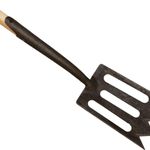
DeWit Spork with Solid Socket
Fine Gardening receives a commission for items purchased through links on this site, including Amazon Associates and other affiliate advertising programs.
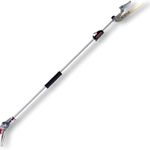
ARS Telescoping Long Reach Pruner
Fine Gardening receives a commission for items purchased through links on this site, including Amazon Associates and other affiliate advertising programs.

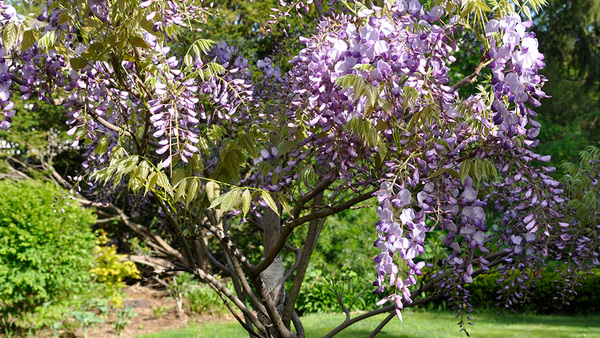
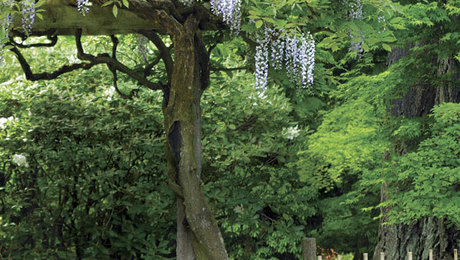
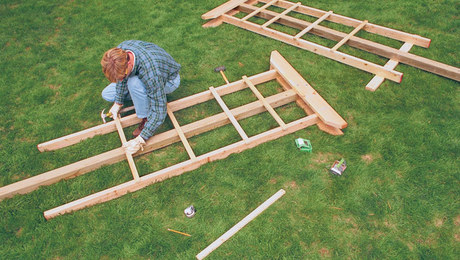

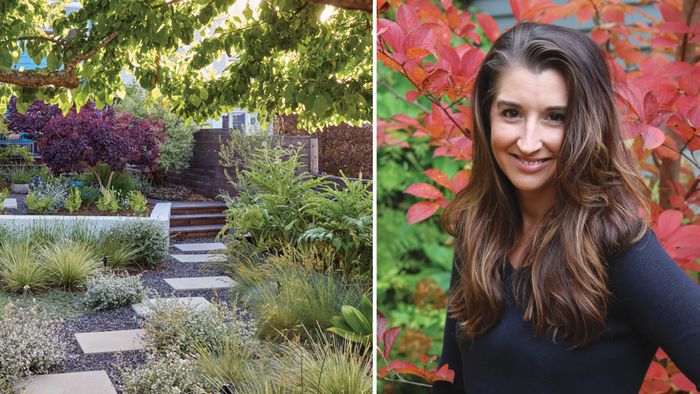
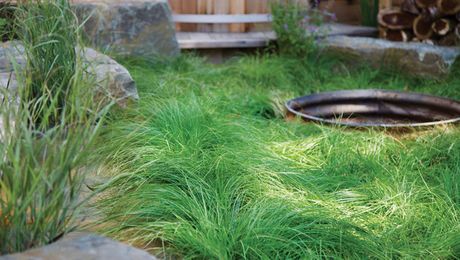











Comments
What a great explanation - really detailed and clear. I had been really struggling to figure out how to do this. I even asked a local wine grower, but he only really had advice on managing small 'bushes' or cordons. Thank you.
What a fantastic explanation! I have a pergola on a deck with four vines and have been at a loss for how to prune no matter how many articles and books I read. This article is exactly what I needed. Thank you, thank you, thank you!
Thank you so much for your explanation, and with the drawings that makes it easier to understand and to do it accordingly.
Okay, stupid question on step 4. You say to not cut all the stems but say to cut the stems back to the cordons, so how do you know which ones to leave long, and which ones to prune back? Sorry again, I'm really new at this, and I have dreamed of having a grape arbor for a really long time.
Thank you for this guide. I have a question if anyone can help. My backyard faces south and we have no shade trees yet. I have a patio that wraps around one side of my house and along the back. I am going to build an overhead arbor or pergola, not sure which is correct term. One side is 35’ and the other is 45’. Using grape vines at all of the posts can i just let them grow and only prune them into the desired shape? Im mot interested in quality fruit as much as i am needing the shade.
Thanks
Log in or create an account to post a comment.
Sign up Log in